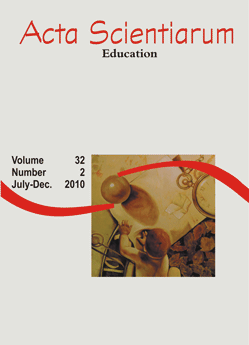<b>Value and meaning of knowledge in eighteenth century Mendicant Orders</b> - doi: 10.4025/actascieduc.v32i2.9775
Abstract
The thirteenth century expresses itself by a University’s own formulation, in which all knowledge must be oriented by sapientia sacrae paginae, which was expressed by theology. This was, undoubtedly, a Church ideal, but also a theoretical challenge for contemporary thinkers. With the epistemological complexity inherited from the twelfth century and the inclusion of mendicant orders in academic work, mainly the Dominicans and the Franciscans, this history of the ideas stage accompanies the basic antagonism: the naturalism of classic heritage – supported by Arabic thinking – and the Christian Humanism that competed against each other to explain Man’s final goal. The value and the meaning of knowledge depended, largely, on the answer given to explain this diversity of perspectives. Moreover, despite the influence of the great ancient authors, Aristotelianism and Neo-Platonism were not prerogatives of a specific religious order. Thus, Neo-Platonism is found in St. Thomas writings while, the Franciscan School empirical orientation is also significant in England. Some, however, would agree about a unit of knowledge that could be interpreted under the label of transcendental beings.
Downloads

This work is licensed under a Creative Commons Attribution 4.0 International License.
DECLARATION OF ORIGINALITY AND COPYRIGHTS
I declare that this article is original and has not been submitted for publication in any other national or international journal, either in part or in its entirety.
The copyright belongs exclusively to the authors. The licensing rights used by the journal are the Creative Commons Attribution 4.0 (CC BY 4.0) license: sharing (copying and distributing the material in any medium or format) and adaptation (remixing, transforming, and building upon the material thus licensed for any purpose, including commercial purposes) are permitted.
It is recommended that you read this link for more information on the subject: providing credits and references correctly, among other crucial details for the proper use of the licensed material.















































